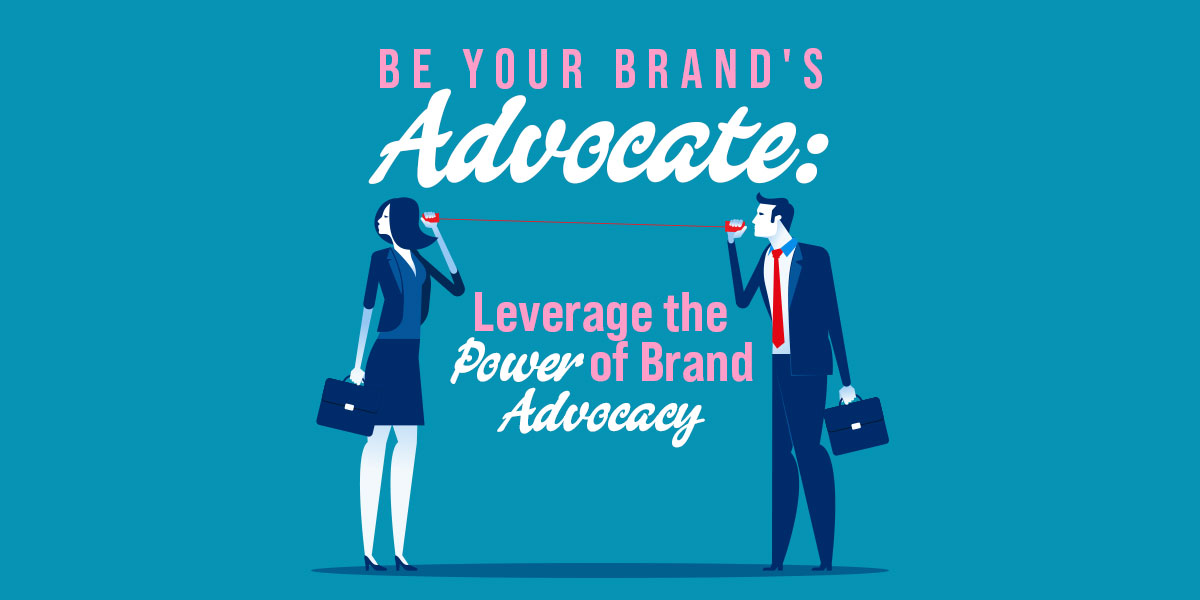In today's competitive marketplace, building strong brand advocacy can be a game-changer for businesses. Brand advocates are loyal customers or supporters who actively promote and endorse your brand, often without any direct incentives. Their positive word-of-mouth and genuine endorsements can drive credibility, expand reach, and ultimately lead to increased sales and brand loyalty. Understanding and harnessing the power of brand advocacy can significantly impact your brand's success. Here’s a comprehensive look at what brand advocacy is, why it matters, and how to leverage it effectively.
What is Brand Advocacy?
Brand advocacy occurs when customers or supporters passionately endorse and promote a brand, its products, or its services. Unlike traditional advertising, which relies on paid promotions, brand advocacy is driven by genuine enthusiasm and positive experiences. Advocates willingly share their favorable opinions, recommend products, and defend the brand, often on social media, review sites, or through word-of-mouth.
Brand advocates can include:
Satisfied Customers: Individuals who have had positive experiences with your brand and are eager to share their stories.
Influencers: Individuals with a significant following who endorse your brand and its offerings.
Employees: Team members who are enthusiastic about the brand and advocate for it within their networks.
Partners: Businesses or organizations that have a beneficial relationship with your brand and actively promote it.
Why Brand Advocacy Matters
Builds Trust and Credibility
Brand advocacy leverages the power of word-of-mouth marketing, which is often perceived as more trustworthy than traditional advertising. When potential customers hear positive feedback from real people rather than from the brand itself, they are more likely to trust and engage with your brand.
Expands Reach and Visibility
Advocates often share their positive experiences on social media, review sites, and other platforms. This organic promotion extends your brand’s reach beyond traditional advertising channels and exposes it to new audiences who may not have encountered it otherwise.
Enhances Customer Loyalty
When customers feel valued and heard, they are more likely to become advocates. Fostering a strong relationship with your customers through excellent service and engagement can turn them into loyal supporters who advocate for your brand over the long term.
Provides Valuable Feedback
Brand advocates can offer valuable insights into what your customers appreciate and what areas need improvement. Their feedback helps you understand your strengths and weaknesses from the perspective of your most engaged and loyal supporters.
Increases Sales and Conversions
Positive endorsements and recommendations from brand advocates can lead to higher conversion rates. Potential customers are more likely to make a purchase when they receive a personal recommendation or see positive reviews from trusted sources.
How to Foster and Leverage Brand Advocacy
Deliver Exceptional Customer Experiences
The foundation of brand advocacy is delivering exceptional experiences that exceed customer expectations. Focus on providing high-quality products or services, outstanding customer service, and a memorable overall experience. Satisfied customers are more likely to become advocates.
Encourage and Facilitate Reviews and Testimonials
Actively encourage your satisfied customers to leave reviews and testimonials. Make it easy for them to share their experiences by providing links to review sites, creating simple feedback forms, or offering incentives for sharing their opinions.
Engage with Your Audience
Regularly engage with your customers on social media, respond to their comments, and acknowledge their contributions. Building a strong relationship with your audience creates a sense of community and makes them more likely to advocate for your brand.
Create a Brand Advocacy Program
Develop a formal brand advocacy program to recognize and reward your most enthusiastic supporters. This program can include incentives such as exclusive content, early access to products, or special discounts. Recognizing and rewarding advocates encourages continued support and advocacy.
Leverage Influencers and Partners
Collaborate with influencers and partners who align with your brand values and target audience. Their endorsements can amplify your reach and credibility. Ensure that these collaborations feel authentic and align with your brand’s messaging.
Monitor and Measure Advocacy Efforts
Track and analyze the impact of your brand advocacy efforts. Monitor social media mentions, review scores, and referral traffic to assess the effectiveness of your advocacy program. Use this data to refine your strategies and maximize the impact of your advocates.
Empower Employees as Brand Ambassadors
Encourage your employees to become brand advocates by fostering a positive work environment and aligning them with the brand’s mission and values. Provide them with the tools and resources they need to promote the brand effectively.
FAQs
What is brand advocacy?
Brand advocacy occurs when customers or supporters passionately promote and endorse a brand based on their positive experiences. It is driven by genuine enthusiasm rather than paid advertising.
Why is brand advocacy important for businesses?
Brand advocacy builds trust and credibility, expands reach and visibility, enhances customer loyalty, provides valuable feedback, and increases sales and conversions.
How can businesses foster brand advocacy?
Businesses can foster brand advocacy by delivering exceptional customer experiences, encouraging reviews and testimonials, engaging with their audience, creating advocacy programs, leveraging influencers, and monitoring advocacy efforts.
What are some examples of effective brand advocacy?
Examples include Apple’s dedicated fan base, Nike’s influencer collaborations, and Starbucks’ customer loyalty programs.
How can I measure the impact of brand advocacy?
Measure brand advocacy impact by tracking social media mentions, review scores, referral traffic, and other relevant metrics. Analyzing this data helps assess the effectiveness of your advocacy efforts and refine your strategies.

















